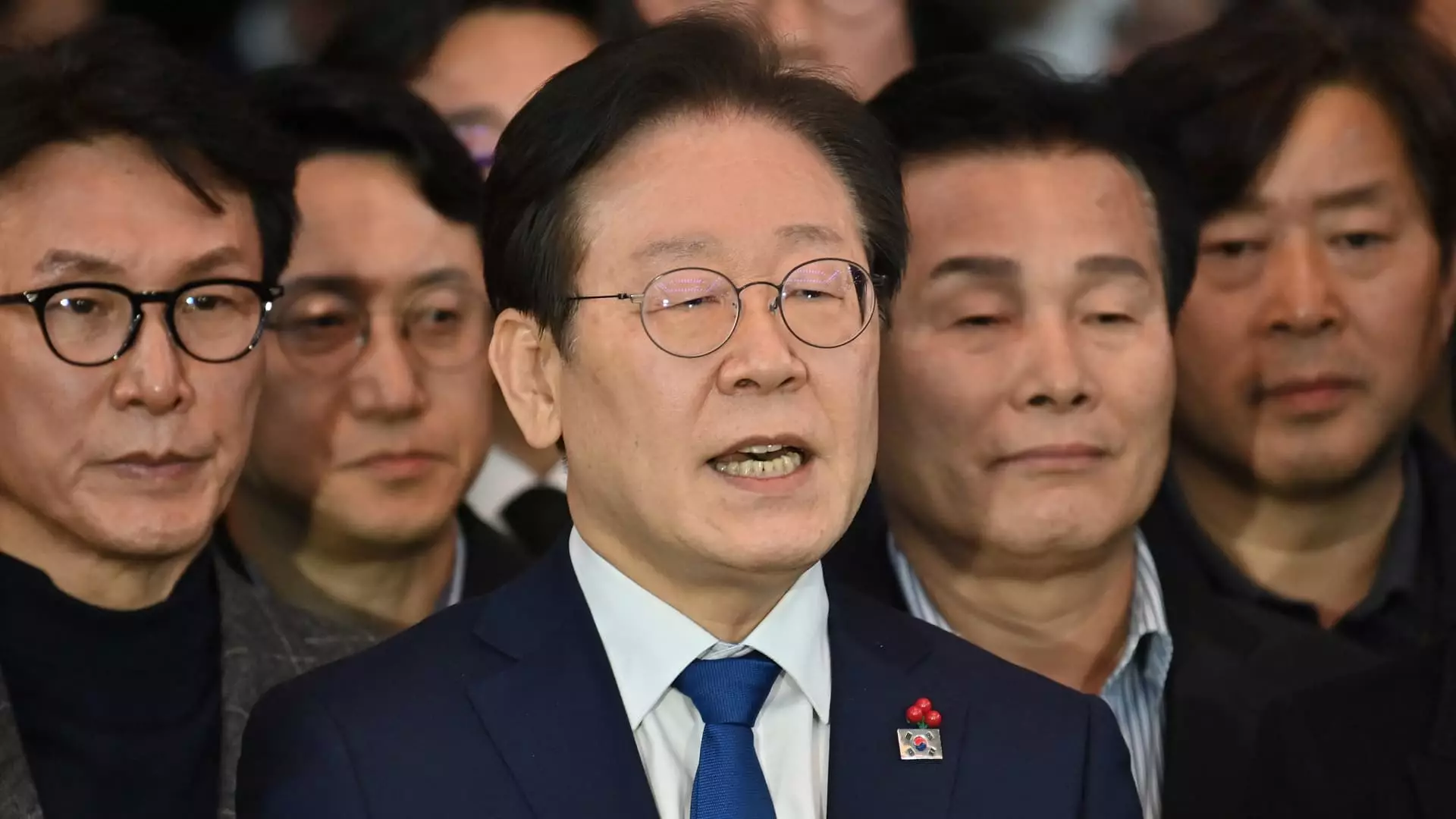In the wake of a politically tumultuous South Korea, presidential candidate Lee Jae-myung finds himself at the forefront of a significant electoral challenge. With the recent impeachment of former President Yoon Suk Yeol, Lee’s Democratic Party of Korea is not only vying for votes but also attempting to navigate the treacherous waters of international diplomacy. A pressing concern is the U.S. trade tariffs imposed during the Trump administration, which Lee argues should be renegotiated to establish a fairer economic framework for both nations. His bold stance positions him as a leader willing to confront uncomfortable truths about the state of diplomacy: it should never devolve into a zero-sum game where one party thrives at the expense of another.
As Lee has pointed out, the current timeline dictated by the United States does not just risk alienating South Korea, but, if adhered to without reconsideration, can fundamentally undermine the very fabric of the bilateral relationship. Such an inflexible approach raises the question: can a relationship built on mutual respect endure when one side operates under the illusion of dominance? The art of diplomacy should embody collaboration and compromise, and Lee’s insistence on reassessing timelines reflects a critical understanding of these nuances.
Economic Resilience amidst Political Uncertainty
The urgency Lee expresses for action on the economy cannot be overstated. He advocates for an “extra budget” to stimulate growth—a recognition that South Korea’s economy, much like its political landscape, is in a precarious position. With the looming threat of recession, his plan to form a dedicated task force to address economic challenges speaks volumes about his proactive nature. Lee’s vision of swift, immediately actionable economic measures is not just a promise; it’s a call to arms for those who deeply care about the nation’s prosperity and resilience.
In an environment where voters are rightfully anxious about job security and financial stability, the demand for a leader who prioritizes economic pragmatism is palpable. Lee’s focus on an active response to the domestic downturn resonates with an electorate weary of divisive politics and yearning for tangible results. His willingness to confront the issues head-on, instead of opting for complacency or populist platitudes, signals a refreshing departure from typical political rhetoric.
Toward Peace: A Pragmatic Approach to North Korea
Moreover, Lee’s foreign policy approach, particularly regarding North Korea, illuminates his dedication to peace through dialogue. Unlike his predecessor, whose hawkish stance arguably heightened tensions and fostered skepticism among global investors, Lee advocates for a balanced strategy that embraces both military strength and cooperative engagement. The belief that security can coexist with diplomacy is critical in this volatile region, and Lee’s vision encapsulates a necessary recalibration.
His emphasis on “‘powerful defense capabilities” doesn’t overshadow his commitment to diplomacy, which is a welcome shift for many South Koreans. The ability to navigate the complexities of regional stability while encouraging dialogue with the North may very well be the key to not only securing South Korea’s safety but also advancing its economic interests. Lee’s optimistic outlook postulates that peace can indeed form the bedrock of economic collaboration, which is essential for the future of the Korean Peninsula.
The Electorate’s Choice: Steadfast Support or Drifting Instability
As Lee gains momentum in the polls, with a significant lead over conservative rival Kim Moon-soo, the stakes for voters are increasingly clear. The electorate must grapple with fundamental questions about the direction they wish to take. With a backdrop of political instability, economic challenges, and a contentious international climate, Lee’s candidacy offers a plausible path toward a more harmonious and prosperous South Korea.
A vote for Lee Jae-myung signifies a commitment to pragmatic, balanced governance that prioritizes economic growth while respecting essential diplomatic ties. Conversely, a move away from such principles risks the disarray of reverting to past tendencies of isolationism and confrontation. For the sake of not only South Korea but also its role on the global stage, it is imperative that citizens assess the future they want to forge. The choice is clear: should they opt for a leader ready to embrace complex realities or one who clings to traditional, discordant tactics?


Leave a Reply